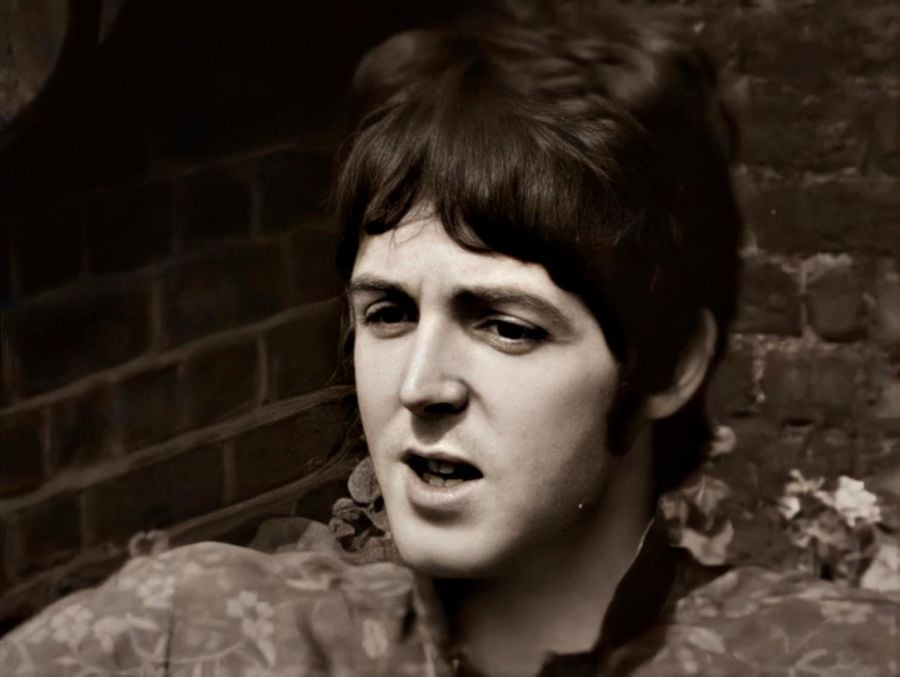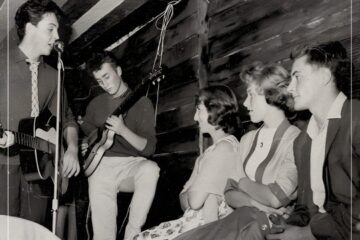The Beatles back catalogue is full to the brim with poetic moments. In fact, much of the band’s albums Rubber Soul, Sgt. Pepper and The White ALbum were all deeply entrenched in the poetic lyricism of John Lennon and Paul McCartney.
While some songs are more obvious odes than others, when you strip away the backing of some of their classic tracks, it becomes far easier to see. One example is the band’s ‘Eleanor Rigby’, which when listening to just Paul McCartney’s vocal quickly becomes a masterpiece.
The song is already a gem for Beatles fans. The sad story of poor Eleanor Rigby and an inept pastor named Father McKenzie who, as part of the tale, delivers the sermon at Rigby’s funeral after she dies alone to an empty service.
McCartney originally believed that he made up the surnames in the track and decided to use the name ‘Eleanor’ because of Eleanor Bron, an actress who appeared in The Beatles’ film Help!. The surname of the Eleanor Rigby character was originally Bygraves before Macca changed it to Rigby after seeing a Bristol wine merchant called ‘Rigby & Evens Ltd, Wine & Spirit Shippers’.
The priest in the song originally labelled ‘Father McCartney‘ because the name found a perfect fit with the beat. However, the Beatle didn’t want to freak his Dad out so decided to have a look through the phone book and landed on ‘McKenzie’ and that was that, ‘Eleanor Rigby’ was finished.
The track even drew inspiration from Alfred Hitchcock’s classic film Psycho. Macca was searching for a new sound but wasn’t a fan of classical music. Having been so ingrained in the musical world for such a long time, it feels strange that McCartney could be so dismissive of classical music. But it took the singer watching Hitchcock’s masterpiece for him to be convinced of the genre’s capabilities.
He took his inspiration to George Martin, the Beatles’ producer extraordinaire, who recalled: “He [Paul] came to me with ‘Eleanor Rigby,’ which cried out for strings.” Martin said the strings shouldn’t be “the smooth, legato stuff of ‘Yesterday,’ but something very biting…[and] very edgy.” McCartney handed over the score for Psycho to Martin as a spark of influence.
But when you remove all of this arrangement and the classic Beatles sound the Fab Four had begun to hone and the story of Eleanor Rigby comes to the fore more potently. The image of a woman without a family or friends left to die alone is a sad one that we can all feel connected to. When you hear McCartney sing the song you can tell he feels that connection more than most.
It turns out that Eleanor Rigby was, in fact, a real person and McCartney had been subliminally influenced by some gravestones near his childhood home. At the graveyard, there was a headstone that read ‘Eleanor Rigby’ and nearby to Rigby’s grave there is another headstone which reads ‘McKenzie’, which may have subliminally both been soaked up into McCartney’s subconsciousness.
In The Beatles Anthology he would discuss this and whether with hindsight this did influence him or was it all just a huge coincidence: “I thought, I swear, that I made up the name Eleanor Rigby. But it seems that up in Woolton Cemetery, where I used to hang out a lot with John, there’s a gravestone to an Eleanor Rigby. Apparently, a few yards to the right there’s someone called McKenzie.”
As with all great poetry, in the end, Macca was inspired by the humanity around him, telling GQ: “When I was really little I lived on what was called a housing estate, which is like the projects — there were a lot of old ladies and I enjoyed sitting around with these older ladies because they had these great stories, in this case about World War II. One, in particular, I used to visit and I’d go shopping for her — you know, she couldn’t get out. So I had that figure in my mind of a sort of lonely old lady.”
He continued: “Over the years, I’ve met a couple of others, and maybe their loneliness made me empathize with them. But I thought it was a great character, so I started this song about the lonely old lady who picks up the rice in the church, who never really gets the dreams in her life. Then I added in the priest, the vicar, Father McKenzie. And so, there was just the two characters. It was like writing a short story, and it was basically on these old ladies that I had known as a kid.”
It is only when you isolate the vocal on ‘Eleanor Rigby’ that the true emotions and expressions of the story come to the surface. Listen below to Paul McCartney’s isolated vocals on The Beatles classic ‘Eleanor Rigby’.



